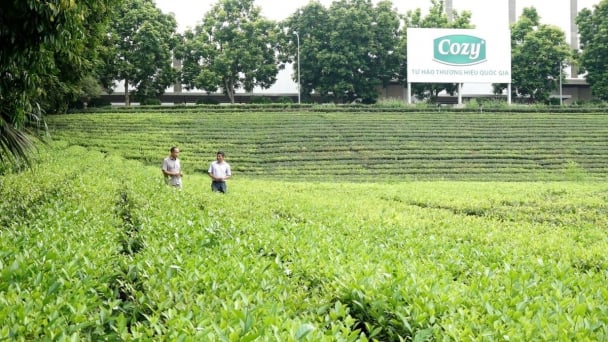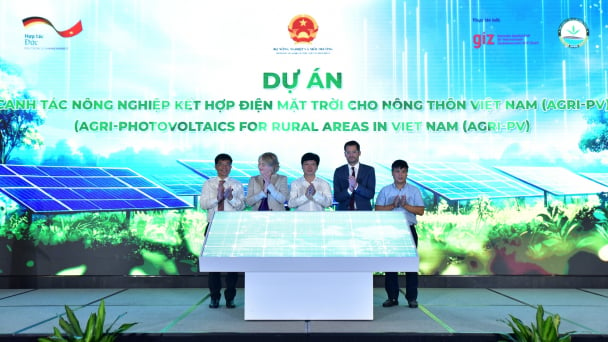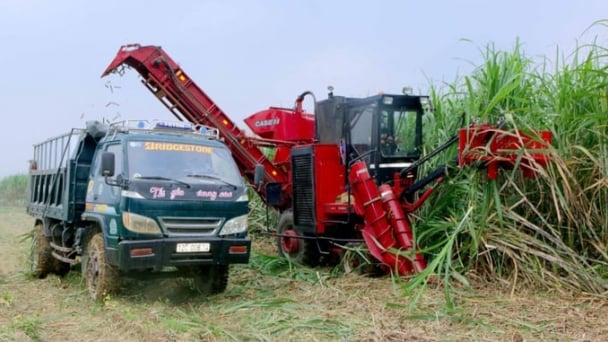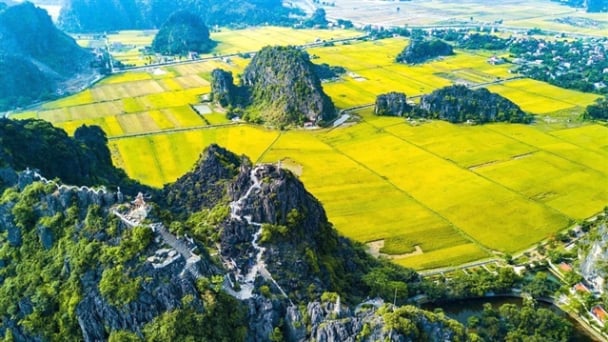September 11, 2025 | 15:30 GMT +7
September 11, 2025 | 15:30 GMT +7
Hotline: 0913.378.918
September 11, 2025 | 15:30 GMT +7
Hotline: 0913.378.918

A conference disseminating regulations pertaining to the construction of facilities and safe zones for animal disease prevention in the Hai Phong area was held in Do Son district. Photo: Dinh Muoi.
According to the Economic Office of Do Son district, Do Son has implemented Resolution No. 20 issued by the Hai Phong City People's Council, which delineated areas where livestock farming is restricted. Namely, the district has conducted reviews, compiled statistics, and requested local livestock farming facilities to sign commitments to cease or relocate their livestock farming operations.
Do Son district currently houses 28 livestock farming facilities that are located in the restricted areas of Van Huong ward. Among these, 12 facilities have ceased livestock operations; and 15 active facilities have signed commitments to cease or relocate their livestock farming operations.
Mr. Ngo Viet Dong, Head of the Economic Office of Do Son district, reported that the district is currently managing a total of 603 livestock farming facilities, including 9 medium-scale livestock farming facilities, 8 small-scale livestock farming facilities, and no large-scale livestock farms. The majority of local residents focus on rearing pigs and poultry, with a total herd of 7,000 and 40,000 heads, respectively. Other livestock such as buffalo, cattle, and goats are negligible in number.
In addition to the review of local livestock farming facilities, Resolution No. 20 promotes information dissemination activities to raise awareness and foster positive changes within the local livestock sector. This initiative aims to gradually reduce livestock farming activities within restricted areas, thereby reducing environmental pollution and risk of disease outbreaks, protecting community health, and fostering the development of green, clean, scenic, and civilized urban areas.
The dissemination of information will be implemented across multiple platforms, including radio programs, local public address system, conferences, meetings, and community gatherings at the neighborhood level.
Additionally, political and social organizations are responsible for disseminating the content of the Resolution and related documents to local livestock farmers and farming facilities.
"According to the roadmap, all livestock farming facilities in Van Huong ward must either cease or relocate their operations to suitable locations by January 1, 2025. To date, only one livestock farming facility in Do Son district withheld from signing a commitment to cease or relocate operations. We will take action to ensure that these residents strictly follow the deadline," Mr. Dong shared.

Twenty-eight livestock farming facilities in the urban area of Do Son district are required to terminate operations or relocate by January 1, 2025. Photo: Dinh Muoi.
Despite its position as a crucial port city, Hai Phong has maintained the significance of its livestock sector in providing food for the city and neighboring provinces, ensuring social welfare, and increasing income for livestock farming households over the years.
However, the development of the local livestock sector must follow a sustainable trajectory without affecting the environment, community, and economy. Consequently, the regulations prohibiting livestock farming in urban areas have garnered support from the local government and community.
Hai Phong city is currently managing over 600 livestock farming facilities in urban areas. According to Resolution No. 20, in addition to Do Son district, several other urban areas are explicitly prohibited from housing livestock farming activities.
Accordingly, all wards within the districts of Ngo Quyen, Le Chan, Hong Bang, and Hai An are prohibited from housing livestock farming activities. A similar restriction is also applied to six wards in Kien An district including Ngoc Son, Tran Thanh Ngo, Lam Ha, Quan Tru, Bac Son, Nam Son; and Anh Dung ward in Duong Kinh district.
On the other hand, the towns of Nui Deo, An Lao, An Duong, Nui Doi, Tien Lang, Vinh Bao, Cat Ba, and Cat Hai are also prohibited from housing livestock farming activities.
Local governments have formulated detailed implementation plans following the issuance of Resolution No. 20, yielding positive initial results. However, several regions are facing significant challenge in the control of local livestock farming activities.
For wards and towns not covered by the aforementioned scope, local organizations and individuals are allowed to engage in livestock farming activities within their current scales. However, they must comply with existing regulations, and refrain from initiating new construction or expanding their operations.
Conversely, residential zones such as urban areas, apartment complexes, collective living quarters, and resettlement areas within the city, are subject to the management of competent authorities, authorized under Article 9 of the Government's Decree No. 11/2013/ND-CP stipulating urban investment management and development.
Translated by Nguyen Hai Long
/2025/09/11/3558-1-121751_813.jpg)
(VAN) African swine fever has caused unprecedented challenges, but it also serves as a reminder of the importance of building a sustainable and responsible livestock industry.

(VAN) affirmed that Vietnam’s AVAC ASF LIVE vaccine is highly effective, raising hopes for the recovery of the country’s pig farming sector.

(VAN) Mr. Doan Anh Tuan, Director of The New Generation Co., Ltd also founder of the Cozy tea brand, is among the first pioneers of organic tea production in Vietnam.

(VAN) The Vietnam-Germany agricultural photovoltaics cooperation project promotes energy transition, green and sustainable agricultural transformation.
/2025/09/09/2930-3-152452_634.jpg)
(VAN) Acting Minister Tran Duc Thang welcomed the Oregon House of Representatives delegation to discuss cooperation on agriculture and environment, trade promotion, and resource management.

(VAN) The 2024–2025 sugarcane season has seen strong harvests and favourable prices in many regions, yet paradoxically the domestic market continues to face pressure from imported sugar.

(VAN) This is the first time that Vietnam will host the 8th Asian Organic Congress, to exchange on policies, markets, organic farming practices.